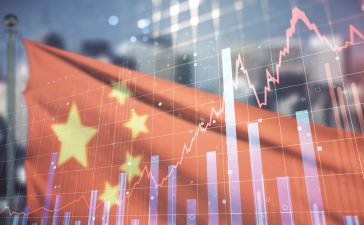EUROSTOXX 50 futures added 0.7%, FTSE futures advanced 0.3% and MSCI’s broadest index of Asia-Pacific shares outside Japan bounced 0.5%
Asian shares were in a cautious mood on Friday after U.S. Federal Reserve officials fired more warning shots on interest rates, while rising coronavirus cases in China and liquidity strains in its bond market added to uncertainty.
Both the dollar and bond yields were shoved higher overnight when St. Louis Fed President James Bullard said interest rates might need to hit a range from 5% to 7% to be ‘sufficiently restrictive’ to curb inflation. That was a blow to investors who had been wagering rates would peak at 5% and saw Fed fund futures sell off as markets priced in more chance that rates would now top out at 5-5.25%, rather than 4.75-5.0%.
Two-year yields crept back up to 4.46%, retracing a little of last week’s sharp inflation-driven drop of 33 basis points to a low of 4.29%. That left them 69 basis points above 10-year yields, the largest inversion since 1981.
The message is about the desire from the Fed to lean against what they would consider premature loosening of financial conditions, said Brian Daingerfield, an analyst at NatWest Markets. And on that front, message received.
The Fed seems squarely focused on over-signalling on the tightening front and hoping the data slow to a point where they can have the flexibility to undershoot.
The bond market’s warnings of recession were not exactly what Wall Street wanted to hear and they left S&P 500 futures flat, while Nasdaq futures inched up 0.1%.
EUROSTOXX 50 futures added 0.7% and FTSE futures 0.3%. MSCI’s broadest index of Asia-Pacific shares outside Japan bounced 0.5%, after slipping for two sessions.
Chinese blue chips were flat amid reports that Beijing had asked banks to check liquidity in the bond market after soaring yields caused losses for some investors. There were also concerns that a surge in COVID-19 cases in China would challenge plans to ease strict movement curbs that have throttled the economy.
Japan’s Nikkei nudged up 0.1% as data showed inflation running at a 40-year high as a weak yen stoked import costs.





